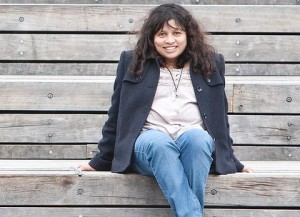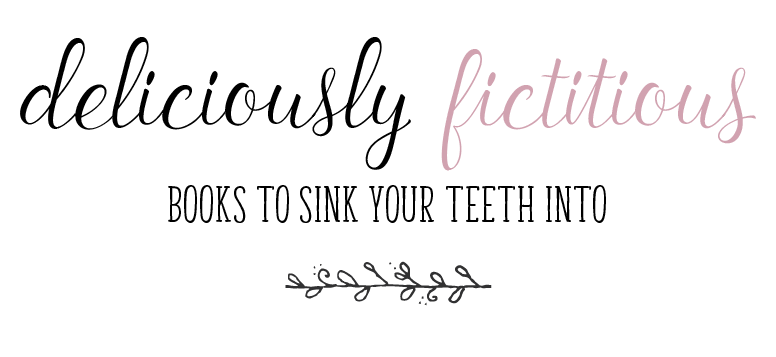
Of characters, that is.
In the six years she’s been writing, Sulari’s killed off her fair share of characters – good, bad and ugly. It’s par for the course when you’re an Australian historical crime fiction writer.
Sulari is a corporate lawyer-turned-author, and has written a Young Adult trilogy based on Homer’s Odyssey (see my review of the first book in the series here), but is perhaps best known for her Rowland Sinclair crime fiction series, which has its roots in true historical events.
(The first book, A Few Right Thinking Men, for example, weaves in true details, such as the historic ‘crashing’ by Francis Edward de Groot of the opening of the Sydney Harbour Bridge.)
The hardest part, Sulari says, is killing off people she knows. She often gives characters the names of fans or friends (in fact, she’s run competitions where fans can win the right to have a character named after them), but the newcomers are more often than not bad guys or bit-parts, which means more often than not, they have to go.
“You wouldn’t believe what people would do to get in the book! I’ve got a list a mile long of people who want to be in,” she says during our telephone conversation. (Sulari is sitting in the dining room of her Snowy Mountains home, surrounded by paintings she’s done – a talent she shares with her protagonist Rowly. I’m in my study, hoping the baby will sleep through our interview.)
“People often barter with old letters and things that they have from their historical archives from their family.
“…It’s hard, because you can only have so many good guys. I’ve actually had to say to people you’ve got to realise this is not you it’s just your name. It’s not what I think of you. Please don’t get upset!”
And with such a prolific output, it’s no wonder she’s had so many casualties along the way. Having spent a year during her lawyer days writing a 15,000 word legal thesis, Sulari is amazed now to think how long that took her, when these days she has the same output in a fortnight .
She prefers to think of herself not as prolific so much as “consistent”.
“A lot of writers write as fast as me but they don’t do it every day,” she says. “I give myself a minimum of 1000 words every day, and if you think about it, that’s three novels a year. And I don’t stop, so as soon as I finish one novel, I don’t give myself a break I just keep going.”
Sometimes she concedes that she reaches her quota by “just pushing through it”, but most of the time, the labour is of love and the challenge is more about how to stop. In fact, Sulari is one of those writers in the fortunate position of loving not having written, but also the act of creation itself.
“I actually love the process, I actually love sitting there with my laptop, being in my head and finding a way to duplicate what’s in my head in words on the page,” she says.
“I still haven’t got over that novelty. It’s still what I want to do more than anything else – so it’s me sneaking off with my laptop at every opportunity I can. And people will tell you that I’ll meet them for lunch and if they’re more than two minutes late, the laptop’s open and I’m writing.”
You might say Sulari is the ultimate eclectic. Having written her legal thesis on child welfare, she always thought she’d end up a barrister, but wound up in corporate law instead because “it was the first place I got a job”.
How do you get from contracts to truffle farming? Simple. Sulari married a “country boy”, Michael, a teacher who “was never completely happy teaching in city schools because he was from a whole culture where everybody knew everybody”. So Sulari, who grew up in Brisbane but likes the cooler weather, agreed they could move “anywhere up the hill from Gundagai”, so he could find a school where he felt more at home.
When a post came up in Batlow, they felt like they should do something with the land, but since everyone else was already growing apples, they opted for truffles instead.
“You need very cold winters, quite hot summers and you need a particular soil type. We had all that, and really you just put the trees in and then you do nothing, until the harvest,” Sulari says, adding (too modestly!): “It’s farming for dummies.”
Although their remote location made juggling legal work a little more difficult (in fact, the couple had to live apart for a couple of years when Sulari got a job in Tassie on the disaggregation of the hydro electric), she says it’s ideal for writing.
“We’re remote enough that people don’t drop in, and it just means that I get uninterrupted time. When we lived in the city … our house was like Central Station. Now this just gives me that quiet time to just actually sit there and talk to Rowland.”
Interestingly, while Sulari loves the Rowland Sinclair series, she says her Greek myth-based Young Adult series Chasing Odysseus would be her choice if she had to say which set of books identified her as a writer.
“Not because I don’t love Rowland, I do, but I just always felt like it [Chasing Odysseus] just never got oxygen because I was always identified with Rowland.
“One of the things about writing different series, it’s like having children where one gets overlooked.”
Writing series, as she does, you might think Sulari has planned and plotted out every detail of every scenario before she puts pen to paper, but in fact she says this is the opposite of the way she works.
“I’m a pantser, I don’t ever plot. I start at word one, and I just start writing, and I have no idea what’s going to happen next.
“Even with the series… when I’m writing book six there are things I’ve mentioned in book one that fit perfectly. And when I wrote book one I had no idea why I wrote it – well I thought I had no idea why I wrote it. Maybe my subconscious has got Rowly planned for me for the next ten books, and it’s just not telling me because the conscious part of my brain is just a little bit overstressed.”
Perhaps this is also the reason Sulari often writes in strange places – in airports, in restaurants. “I find that I write really well in those snatched bits of time. And I think it’s because when you prepare yourself to write, and get at your desk nicely and get your pencils straight etc etc, it’s just too much pressure.”
But her writing space of choice is sitting up in bed, late at night after her kids and husband have gone to sleep, with the telly on in the background. “I have this theory that if you concentrate too much you freeze up,” she says, laughing at her “poor” husband who has had to learn to sleep with the tapping of the laptop keys in one ear and CSI in the other.
In fact, Sulari is surrounded by family members supportive of her craft. Her father has a boot full of her books, so he can sell them at any opportunity.
“My dad wanders around with my books laughing uproariously on trains and things,” she says, laughing. “He’ll go up to total strangers, like the guy at JB Hi-Fi and he’ll be buying something, and he’ll say to him ‘oh do you read?’ And then he’ll try and flog him my book!
“His idea is when people say they’ll buy a book you’ve got to have a book there for them. So if they’re silly enough to say ‘yes, I read’ to my father, he’ll sell them a book.”
Sulari’s latest Rowland Sinclair, A Murder Unmentioned, published by Pantera Press, was released in November. And her blog promises a new one is already in the works.
Now really, would we expect anything less?
~ DF
Find out more about Sulari on her website. And you can even see her speaking on historical fiction and personal histories at the Historical Novel Society Australasia conference in Sydney from 20-22 March. Details here.


thanks for sharing this interview, I enjoyed it.